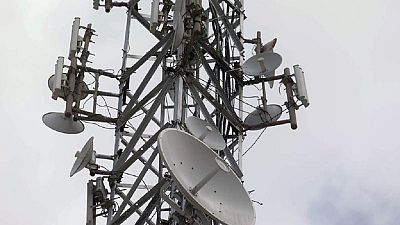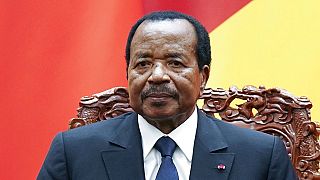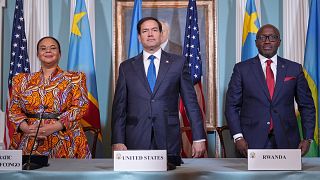Cameroon
The Cameroonian government has been hurled before the country’s top court over the imposition of an internet blackout on the restive Anglophone regions.
Two net freedom groups, Access Now and Internet Sans Frontieres (ISF) on January 19, intervened in a lawsuit “challenging a government-ordered shutdown in Cameroon’s Anglophone regions last year.
“We are providing expert advice on requirements under international human rights law and urging the court to end the shutdowns for good, a statement by Access Now said.
The two groups come under the banner of #KeepItOn coalition and have been documenting the cost of internet shutdowns. They are joining two earlier actions instituted in April 2017 seeking to have judicial pronouncement on the shutdown.
In the 2017 papers, the Cameroon government, the Ministry of Post and Telecommunication and the sector agency Cameroon Telecommunication (CAMTEL) are listed as respondents. There are five petitioners including the Global Conscience Initiative and Global Links.
The government on September 30, 2017 placed restrictions on access to social media networks like Facebook, Twitter and whatsapp.
This was despite a government statement saying that no such plans were to be implemented. Activists doing a count say Thursday January 25, 2018; is the 118th day of shutdown.
September 30 was the eve of a symbolic declaration of independence by the two Anglophone regions under the Ambazonia State banner. At the time a heavy security deployment across the regions was also in place, subsequent clashes between separatists and security forces lead to deaths, injuries and mass arrests.
It was, however, not the first such disruption in the Central African nation, an earlier one was a total blackout in the northwest and southwest regions. It was only lifted in April 2017 after over three months.
#Cameroon #SouthernCameroons Internet restriction in Cameroon's Anglophone region hitting 60-day mark | Africanews https://t.co/t09640vREx
— Judith Nwana (@judithnwana) November 27, 2017
“Cameroon’s courts have the opportunity to set a global precedent in favor of human rights and the rule of law,” said Peter Micek, General Counsel of Access Now.
“By declaring the government’s shutdown order a discriminatory, unnecessary, and disproportionate decree, issued under flawed procedures, the court can provide remedy to Cameroonians and light a path for victims of shutdowns elsewhere.”
“A decision by Cameroon’s Constitutional Council to reaffirm the protection of Human Rights, and rule on the illegality of shutdowns, would send a historic and powerful signal to other countries of the Central Africa region,” said Julie Owono, Executive Director of Internet San Frontieres.
Between 2016 and 2017, most countries in the region arbitrarily used internet shutdowns for political reasons and it is predicted the situation would get worse with more authoritarian leadership taking deeper roots.














00:49
Teachers strike shuts down schools across Cameroon
Go to video
Uganda plans law to allow military prosecution of civilians
Go to video
Robot waiter becomes a star attraction at Havana restaurant
Go to video
Drones, AI cars and delivery robots: Gitex Africa tech show closes its third edition
Go to video
Drones transform life, industry in south China's Shenzhen
Go to video
Ex-member of former Gambia dictator's military unit is on trial in the US for torture